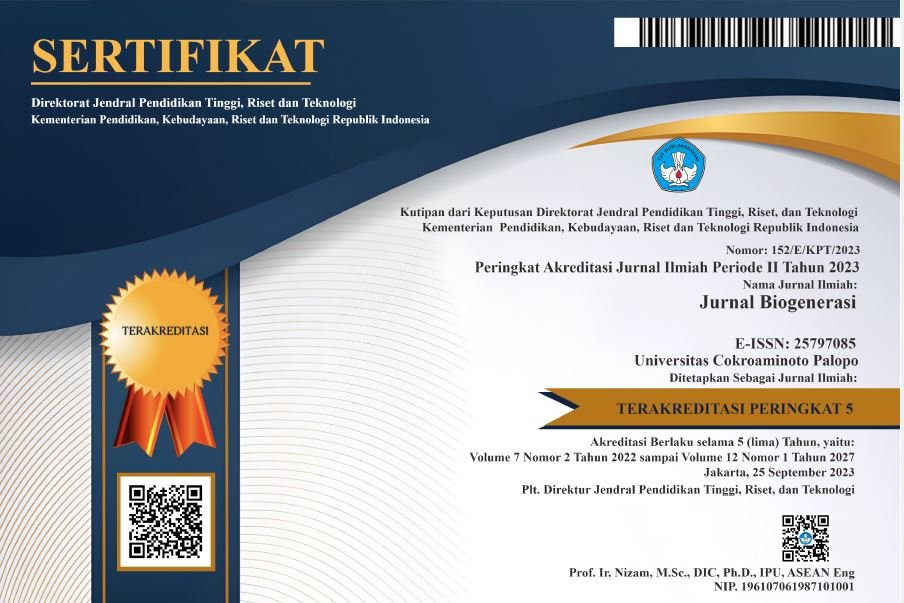Perbandingan Hasil Belajar Mahasiswa Yang Menggunakan E-Learning Berbasis Edmodo Dengan Yang Tidak Menggunakan E-Learning
Keywords:
edmodo, hasil belajarAbstract
E-learning saat ini sedang banyak diworkshopkan agar dapat digunakan baik di tingkat perguruan tinggi maupun tingkat sekolah menengah dan atas. Namun kondisi di sekolah yang belum semua memungkinkan untuk pelaksanaan total E-learning. Hal ini bisa dilihat pada saat pelaksanaan UNBK di daerah yang hanya melibatkan beberapa sekolah yang tersedia computer dan jaringan internet yang bagus, sehingga berdampak pada waktu pelaksanaan yang harus dilaksanakan beberapa sesi. Beberapa masalah yang menjadi penghambat dalam pelaksanaan E-learning disekolah adalah, kurangnya pengetahuan tentang software e-learning, sulit dalam membangun system e-learning dan kekurangan computer/laptop yang digunakan oleh siswa. Penelitian ini dilaksanakan pada semester genap mulai Juni – Juli 2019 dan dilaksanakan di 2 kelas mahasiswa semester VI prodi pendidikan Biologi Universitas Cokroaminoto Palopo. Metode penelitian yang digunakan dalam penelitian ini adalah metode deskriptif dan komparatif. Berdasarkan data perbandingan hasil belajar terlihat bahwa nilai tertinggi diperoleh pada kelas E-learning, dan juga rata – rata nilai mahasiswa lebih pada kelas E- learning. Demikian pula pada nilai terendah mahasiswa terlihat bahwa kelas E- Learning memiliki skor nilai terendah hasil belajar yaitu 60, sedangkan pada Kelas tanpa E- learning terlihat skor terendah yaitu hanya 34. Berdasarkan data perbandingan hasil belajar tersebut dapat disimpulkan bahwa hasil belajar mahasiswa yang menggunakan E-learning berbasis Edmodo mendapatkan hasil yang lebih baik daripada mahasiswa yang belajar tanpa e-learning walaupun hasilnya tidak begitu jauh.
Downloads
Downloads
Published
How to Cite
Issue
Section
License
In submitting the manuscript to the journal, the authors certify that:
- They are authorized by their co-authors to enter into these arrangements.
- The work described has not been formally published before, except in the form of an abstract or as part of a published lecture, review, thesis, or overlay journal.
- That it is not under consideration for publication elsewhere,
- That its publication has been approved by all the author(s) and by the responsible authorities – tacitly or explicitly – of the institutes where the work has been carried out.
- They secure the right to reproduce any material that has already been published or copyrighted elsewhere.
- They agree to the following license and copyright agreement.
License and Copyright Agreement
Authors who publish with this journal agree to the following terms:
- Authors retain copyright and grant the journal right of first publication with the work simultaneously licensed under Creative Commons Attribution License (CC BY 4.0) that allows others to share the work with an acknowledgment of the work's authorship and initial publication in this journal.
- Authors are able to enter into separate, additional contractual arrangements for the non-exclusive distribution of the journal's published version of the work (e.g., post it to an institutional repository or publish it in a book), with an acknowledgment of its initial publication in this journal.
- Authors are permitted and encouraged to post their work online (e.g., in institutional repositories or on their website) prior to and during the submission process, as it can lead to productive exchanges, as well as earlier and greater citation of published work.



.png)

